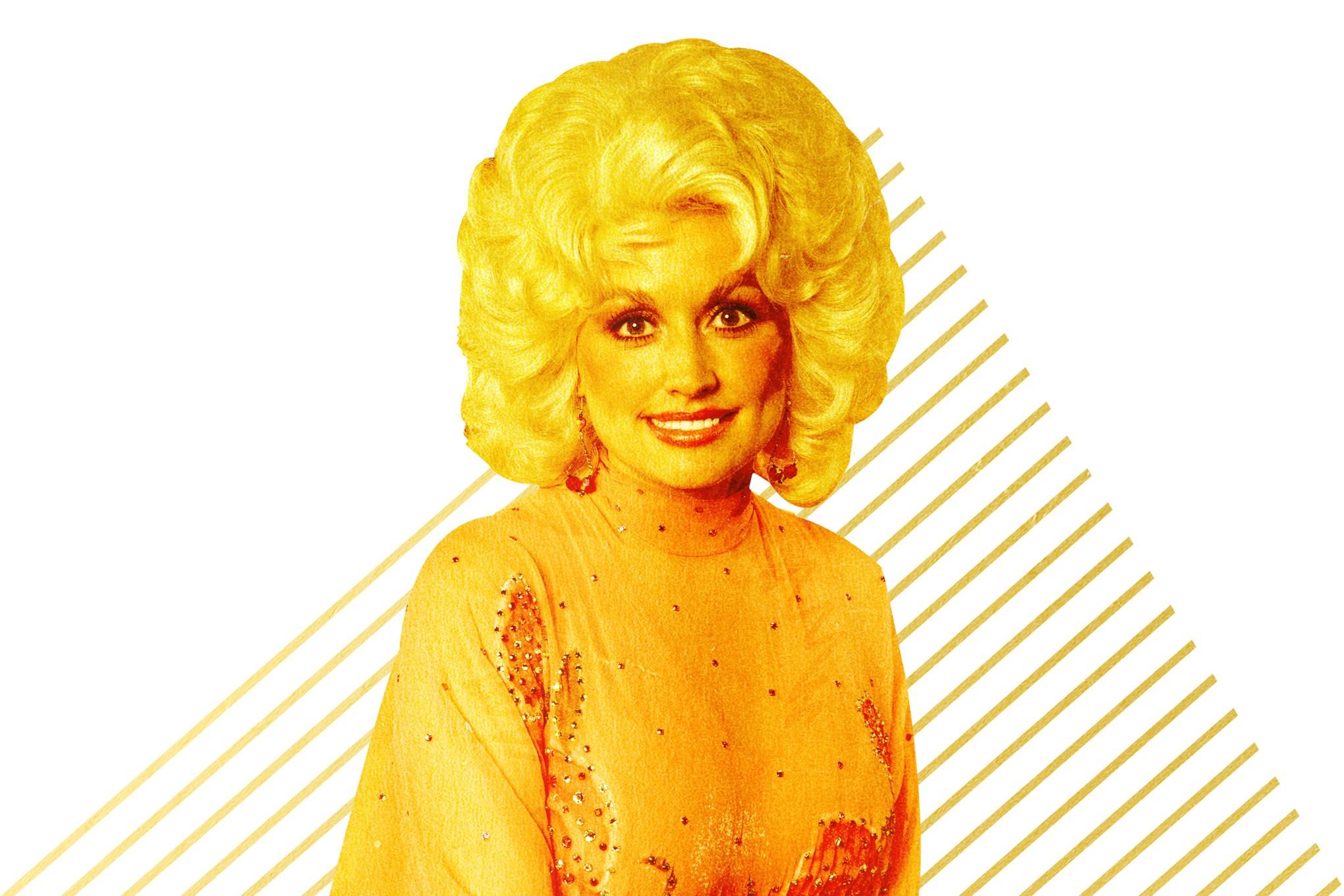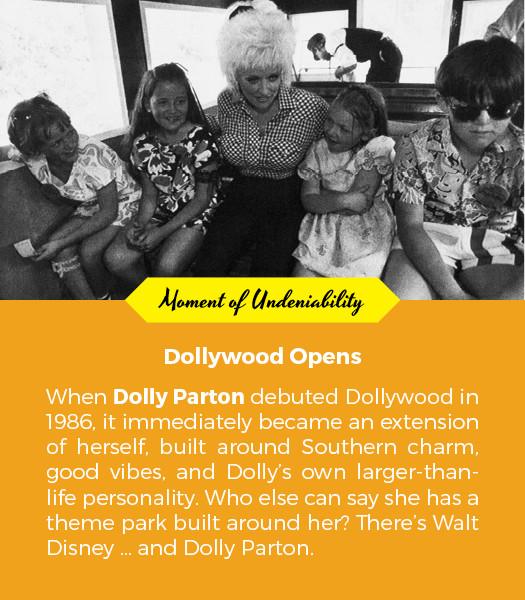
In the Internet Age, monoculture is unachievable. But there remain a few things that we can all agree on. The Ringer is looking at this rarefied group all week. These are our Undeniables.
“Dolly, where I come from,” Barbara Walters asked Dolly Parton in a 1977 prime-time network television interview, “would I have called you a hillbilly?”
Wearing a turquoise sateen jumpsuit and a wig like God’s favorite dandelion, our jovial goddess answered this silly question as she answers every silly question — with country grace.
“If you had’ve, it would’ve been something very natural,” Dolly said. “But I would’ve probably kicked your shins.”

Dolly Rebecca Parton was born in the Tennessee mountains to a family so poor they paid the doctor who delivered her in cornmeal. She grew up with a mother, father, and 11 brothers and sisters in a house that had as she later put it, “running water, if you were willing to run and get it.” She made a sort of guitar out of the strings she found in a gutted piano decaying in an abandoned church. One of the only things she wanted more than to be a singer was to have a pony, and a wily uncle once told her that if you wanted a pony badly enough you could grow one by planting pony seeds. So she dug in the dirt with her bare hands and buried some horse turds. She watered them diligently. She dreamed.
As that Barbara Walters interview (and many others like it) proves, the Dolly Parton that girl grew into is and always will be a master at the art of self-preservation. She is quick to make the first joke about herself, and it is often a better joke than anyone else could have made about her anyway. As a girl with a flair for over-the-top style operating in a male-dominated industry bound to underestimate her, early in her career this approach became a means of survival. One of her first hits was called “Dumb Blonde,” and it contained what would become one of Dolly’s signature battlecries, “Just because I’m blonde, don’t think I’m dumb/’Cause this dumb blonde ain’t nobody’s fool.”
She proved this over and over in that Barbara Walters interview. Later in the segment, Walters gestures toward Dolly’s chest and asks, “Is it all you?” Dolly shrugs off the question and says, “If I hadn’t had [them] on my own, I’m just the kind of person that would have had some made.” Touché, world. And lest you think the zingers have diminished with age, might I suggest this delightful Today show interview she gave two years ago. Of Carl Dean, her husband of 50 years, she tells Savannah Guthrie, “We know each other so well, I know every line in his face and he knows every hair in my wig.”

A precocious talent with a brassy voice, Dolly Parton appeared on Tennessee legend Cas Walker’s show when she was 10, made it to the Grand Ole Opry by 13, and from there things just snowballed. She rose to prominence singing with country star Porter Wagoner on his syndicated TV show, but her self-penned solo hits — “Coat of Many Colors,” “I Will Always Love You,” “Jolene” — began to climb the charts and by the mid-‘70s she’d eclipsed him. That Barbara Walters interview is a snapshot of Dolly at a transitional moment, ready to make the move from country music superstar to regular old household name. “I’m not near where I dream of being,” she says at the end of the clip with unshakable self-confidence, looking dreamily toward a future that even then she seemed to know would include loads of accolades (eight Grammys!) a bunch more no. 1 hits (25 in all, a record for a female artist on the country charts!), starring roles in movies (it’s easy to forget that her charismatic turn in Nine to Five was her film debut), and, of course, an entire goddamn amusement park dedicated to herself.
Her influence has been all over the superstars that came after her: It’s hard to imagine artists like Shania Twain and Taylor Swift crossing over from country to pop without the trail that Dolly blazed. Carrie Underwood pays tribute to her any chance she gets; Miley Cyrus did a killer cover of “Jolene” on her last big tour. I even see something of Dolly’s spirit in Nicki Minaj — another savvy businesswoman/wig obsessive who successfully navigated a crossover from a male-dominated genre to mainstream superstardom. Also, they both have a thing for Mattel: As Dolly sang on her 2008 song “Backwoods Barbie,” in a line that could have been a mantra for her entire subversive career, “Don’t let these false eyelashes lead you to believe/That I’m as shallow as I look ’cause I run true and deep.”
Ah, bless Dolly Parton, the country girl who stained her mouth with pokeberries before she could afford lipstick, who used her grandmother’s shoulder pads to make her first push-up bra, and who, over and over again, spun the trials of her childhood into beautiful songs. The Tennessee mountain girl who made good without forgetting her roots — who buried horseshit and grew into a unicorn.